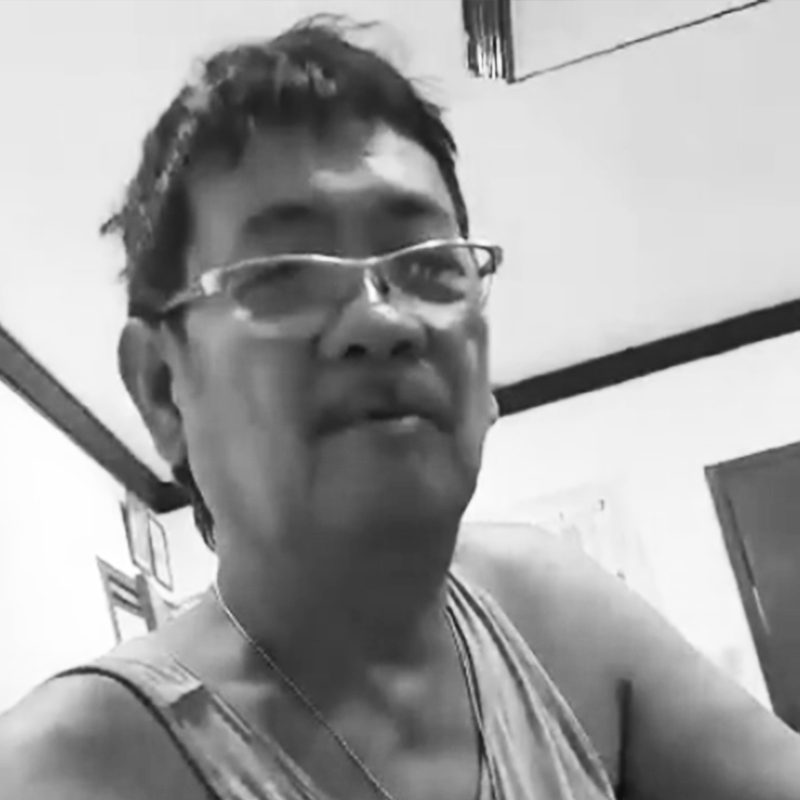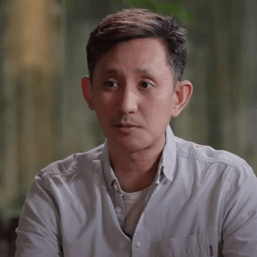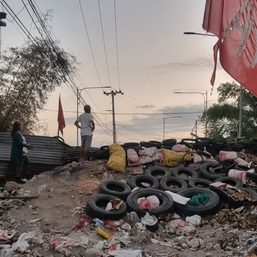SUMMARY
This is AI generated summarization, which may have errors. For context, always refer to the full article.

With the death of baby River Nasino in October 2020, the Supreme Court sought to avoid another unnecessary death through creative ideas on judicial relief for prisoners, but none was available to 59-year-old peasant leader Joseph Canlas when he was arrested in March and died of COVID-19 a month later.
In the absence of court relief that was envisioned by the justices in the Nasino case, Canlas’ children have no recourse but to sue post-death. On Wednesday, May 19, they filed complaints of reckless imprudence resulting in homicide, grave misconduct, and gross negligence against certain police and jail officials in Pampanga.
Canlas’ children Jenelle and Joseph alleged in a complaint filed before the Office of the Ombudsman that the jail officials in Pampanga “neglected to provide him with immediate medical care despite the fact that he was already seriously ill when he was transferred to their regular detention facility.”
Canlas was the vice chairperson of the Kilusang Magbubukid ng Pilipinas (KMP), and among the activists arrested and jailed in simultaneous raids during the Holy Week.
Like other activists jailed recently, Canlas was found with illegal firearms and explosives. They claim these are planted as part of a pattern of crackdown on dissent.
What happened
According to the complaint-affidavit, Canlas stayed for 14 days inside the police detention cell in Camp Julian Olivas in San Fernando City, Pampanga, under the Philippine National Police’s Criminal Investigation and Detection Group (CIDG) in Central Luzon.
There, Canlas allegedly only went through a medical examination but not COVID-19 tests. During this period, his family had been worried because they could not visit Canlas due to the police’s refusal to allow entry for people with no negative swab test to show. The family was “told that there were cases of COVID 19 positive personnel inside the building,” the complaint said.
“During their visit, Canlas informed complainants that no medical tests for COVID 19 were done during the length of his stay at the CIDG facility,” according to the complaint.
Because Canlas had pre-existing conditions like hypertension and diabetes, his family wanted to bring a doctor to examine him inside CIDG. They were apparently told that the activist would be brought to the hospital for medical clearance before his transfer to the regular detention cell run by the local Bureau of Jail Management and Penology (BJMP).
According to the affidavit, this medical clearance was “only on the basis of the minimum requirement that detainees did not exhibit any symptoms for COVID.”
“[Atty Luz Perez, Canlas’ lawyer] was told by the jail warden that they did not have the resources nor the capacity to give swab tests to all incoming inmates considering the number of detainees committed at the Angeles City District Jail ,” said the affidavit.
Upon transfer to BJMP on April 15, Canlas stayed at a quarantine area of the district jail only for 14 days, where he “was packed, together with 90 to 100 detainees,” the complaint said. Rappler reached out to Jail Senior Inspector Gerald Bautista of BJMP Central Luzon about this claim but he had yet to respond as of posting.
Canlas’ children claimed that Canlas stayed longer in quarantine, as he was only transferred to a regular cell on May 7, or 8 days longer than the 14-day period.
On May 8, the family was informed that Canlas “had difficulty walking, and that they had to bathe and feed him because he was unable to do so himself.”
In an earlier message to Rappler, Bautista said Canlas showed signs of fever only on May 7 and was “immediately given medicine but the fever went on and off, until night of May 8 that the unit decided to rush him” to the hospital.
The children claimed “the jail staff nurse merely said that his blood pressure was stable, and that he only needed to be administered with medical oxygen as his oxygen level was low.”
“To add to their mounting worry, the jail nurse said that the oxygen tank supply of the jail was running low. They even ordered complainants to buy the tank themselves with money given by the nurse,” said the complaint.
When he was still responsive, “Canlas disclosed that he was having recurring fever while on quarantine,” according to the complaint.
The complaint said it was a combined effort of the family and their lawyers to take Canlas to the hospital and that they were only allowed by jail officials to do so “hours after the complainants insisted that emergency medical care was necessary.”
The family saw Canlas at the Ospital ning Angeles (ONA), where they were told to look for another hospital with an intensive care unit (ICU) that can accommodate him.
“They were manually pumping their father through a bag valve mask or Ambu bag, they were at the same time looking for a hospital which may admit their father,” said the complaint.
Canlas was diagnosed with a severe case of COVID-19 at the Jose B. Lingad Memorial Regional Hospital, where he died on May 11.
Reckless imprudence
Article 365 of the Revised Penal Code punishes imprudence and negligence when a person “voluntarily, but without malice, do or fail to do an act from which material damage results by reason of inexcusable lack of precaution on the part of the person performing or failing to perform such act.”
“It cannot be denied that the failure of respondents to perform acts eventually caused his untimely death,” said the complaint.
“It can be explicitly and reasonably concluded that the respondents failed to exercise the necessary precaution to prevent the risk of COVID 19 infection causing the death of Canlas,” said the complaint.
Canlas’ children also filed administrative complaints of grave misconduct and gross negligence, and asked the Ombudsman to impose preventive suspensions. It’s the Ombudsman’s unique power to suspend or even fire officials even before the finding of probable cause for the criminal complaint.
Named in the complaint are CIDG Region 3′ Colonel Edwin Balles, the regional chief; Major Alfredo Agbuya Jr, chief of the investigation branch; BJMP Region 3 Chief Superintendent Lyndon Torres, ACDJ warden Superintendent Rebecca Manalo-Tiguelo, ACDJ chief nurse Jail Officer 3 Caroline Sanchez, ACDJ staff nurse Jail Officer 1 Ma Christine Boucher.
Deliberate indifference
In the case of baby River, the Supreme Court merely remanded the case back to lower courts in a belated decision widely slammed for being impractical and detached from the urgent reality of prisons in a pandemic.
In that decision, Senior Associate Justice Estela Perlas Bernabe raised the concept of deliberate indifference. “To let an accused perish in jail because of the deliberate indifference of the State towards his or her medical conditions is even worse than a penalty because he or she has been effectively sentenced to death absent a final determination of his or her guilt,” said Bernabe.
“Surely there must be some form of judicial relief to, at the very least, balance these various interests,” Bernabe added.
Associate Justice Marvic Leonen proposed a writ of Kalayaan, or protective writ for prisoners. But that remains an idea up to now.
Canlas’ wife, Mercelina, has the searing memory of seeing her husband in the hospital as he was being intubated. It would be the first and last time she would see her husband of 34 years since his arrest.
“She could not hug him, tell him how much she loves him and how proud she was of him for selflessly working for the interests of the Filipino farmers,” their children said.
The government has restored its intense arrest policy on quarantine violators, but the guideline to make sure jails don’t overcrowd and avoid COVID-19 transmission is yet to be issued. – Rappler.com
Add a comment
How does this make you feel?




![[WATCH] Dahas Project, the team that continues to count drug war victims](https://www.rappler.com/tachyon/2024/03/dahas-project-2.jpg?resize=257%2C257&crop=404px%2C0px%2C1080px%2C1080px)





There are no comments yet. Add your comment to start the conversation.